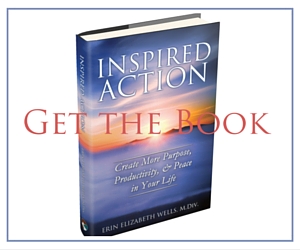Do you know where you’ll be sleeping next month? How about 4 months from now or 1 year? For some digital nomads that’s part of the fun, the utter lack of plans or commitments. I was recently listening to a podcast interview with Eli David (a full-time Digital Nomad for the past 7 years, founder of BecomeNomad.com) and Travis Sherry (a former full-time nomad, who now has a home-base in Philly from which they travel frequently, who’s host of the Extra Pack of Peanuts Podcast.)
They were talking about how it makes them both anxious if they are asked to commit to a plan (like attending a wedding) several months in the future. I have to admit, I rather laughed because I’m just the opposite.
For me, if you want a solid chance that I’ll be there, then give me as much notice as possible! Then, I can simply decide whether this invitation feels good to accept, and I’ll work my other plans around it.
What this conversation brought to light is the fact that we all have a preferred planning style and a planning horizon, but not everyone’s are the same.
When we aren’t “in alignment” with our preferred style and horizon, then things can feel stressful, which can cause an emotional drain on you. Those emotional drains can be minor or costly, and they have a direct impact on your personal productivity. So, let’s explore these different styles and horizons and gain some clarity about your own preferences, so you can minimize these emotional drains in the future.
What’s Your Preferred Planning Style?
I have a theory that there are three different planning styles, so let me outline them for you:
- No Commitments – These folks prefer to have as few solid commitments on their calendar as possible. They might have ideas about things they want to do or places to go, but they prefer to just wait until the energy strikes them to follow through and make those things happen.
- Tentative Planners – If you’re a tentative planner, then you’re fine adding things to your calendar, but, as we would have said in older, analog days, everything is written in pencil. In other words, you’ll sketch in some possibilities for your future about events you’d like to attend, places you’d like to go, or things you might do, but you won’t fully commit yourself to showing up until maybe the week, day, or even the hour before.
- Firm Planners – If you like to know what’s coming down the line so you can feel prepared in advance, then you might be a firm planner. When you put something down in your calendar, then there’s a darn good chance that you’ll show up. Basically, unless a massive emergency or some significant priority shift happens, when it hits your calendar, then it’s as good as done.
Now, I’m not going to say that one style is better than another, and it’s highly likely that you might be a firm planner in some areas of your life and more “no commitments” in others. For instance, when it comes to choosing where we’re going to travel and booking lodgings I’m a hard-core firm planner. However, once we arrive in a particular location I’m far more tentative on a day-to-day basis.
I’ve even created a separate “Events” calendar in my system that allows me to add information about events I hear about or research when I’m getting to know a place, but it separates that information from my Master Calendar which has my firm commitments (medical appointments, client calls, dates with friends, plane flights, etc.) Then, I can toggle that separate calendar on or off to consider what we want to do today or this weekend, but not clutter up my main calendar with stuff that’s just “possible” rather than firmly planned.
Now, if you are a “No commitments” kind of planner, you could also use this technique for all those invitations that you’re not confident you’re going to accept or events you may not attend. You can add them to a separate “Options” Calendar in your main calendar tool, and then copy them over to your Master Calendar once you’ve made your decision.
Recently, I’ve found that this issue of planning style comes up most frequently for us when we’re talking to my father-in-law. Now, no judgement here, but his style and ours are exactly opposite. Brian and I are largely both “firm planners,” particularly when it comes to planning to spend time with people we care about. However, my father-in-law is completely a “no commitments” kind of guy. As he says, he’s retired, so why make plans? I think this is one of his favorite parts of being retired after decades of being “required” to show up for work every day as a police officer and then a nurse.
The cost of this mismatch in planning style came to light again this summer when we traveled back to New England to see our friends and family. Brian tried several times in the month+ leading up to nail down a time to see his father because we knew that the window of opportunity was small (aka days). But, each time the response was something like, “Sure, just give me a call when you’re in town. Looking forward to seeing you.”
Well, fast forward to the week when we were going to be in town near his home. Brian reached out several times to solidify and plan, and literally got no reply. After trying 3-4 times over 2-3 days, we honestly started to get worried. It got to the point where Brian’s sister actually drove over to their father’s house to look for his car and do a “health check.”
Low and behold, the car was gone, and we all came to find out a day later that he’d decided to drive to Canada for a retreat event and had turned off his phone to make sure he didn’t pay any international roaming charges. *doh!* Suffice it to say, he was disappointed not to get to see his granddaughter (and us), and we were a bit dumbfounded that he’d so lost track of the days to completely miss our visit.
I share this story simply because it’s a perfect illustration of a planning style mismatch and to illuminate that you too probably have people in your life who have a very different style from your own. None of them are right or wrong. They’re different, and each has costs and benefits.
What’s Your Planning Horizon?
Now, similar to planning style is the concept of your planning horizon. In other words, how far in advance do you prefer to plan things out?
- A few days
- A few weeks
- A few months
- A year or more?
Just like with planning style, your horizon might be different for various areas of your life. For instance, with our travels (and particularly our accommodations), I really like to know where we’re going to be sleeping for roughly the next year. Yep… firm planner, remember?
I think this comes partially from being a mom. Even with our traveling lifestyle, I like to know that I will have a safe, comfortable, and beautiful home for my family. I don’t like the possibility of being “stuck” somewhere that doesn’t feel good for us.
I also think it’s a reaction to having been “forced” to move 3x in 2 years just prior to our decision to become full-time nomads. Not having a sense of choice or agency and being told that we needed to move within 60 days really sucked! (It happened once while I was 5 months pregnant and twice more in the first year of my daughter’s life. None of these moves were because of things in our control either (i.e. landlady got laid off and decided to move back into the house we’d been renting, the property was being sold, etc.)
Now, obviously, I know that sometimes Airbnb bookings get cancelled last minute by a host, but *fingers crossed* that hasn’t happened to us yet. And, we’ve discovered that having committed bookings roughly 12 months in the future allows us to feel more relaxed about everything. It also allows me to negotiate some GREAT rates for extended stays (3-4 months) in rather expensive locations. The place we stayed in Lake Tahoe frequently books out for $200+/ night, but we got it for $62/night on a “shoulder season”… not bad, huh?
I have a feeling that some of you might be positively twitching at the idea of booking places 12+ months in the future. Maybe you’re more comfortable with just committing for the next few weeks or the next month. If that’s the case, no problem! You do you!
However, notice the next time something comes up that pushes you to go outside your preferred horizon. Whether that’s a distant plan, if you have a short horizon (like the wedding in 7 months that Eli and Travis were talking about), or a plan falling through last minute, if you’re a longer term planner. I can almost guarantee that when those moments happen in your world, your stress level goes up.
Those are the moments when we remember that being flexible is a skill, as is problem-solving. So, how can we breathe through and ensure that we’re never overly attached to being “just one way.” As I say frequently to my clients, “create the shape, but hold it loosely.”
The goal is to have “just enough” structure in our lives to make them functional and enjoyable, and to learn to be comfortable with finding the sweet spot of “just enough” for each of us.
Next Actions
If you’re recognizing that adding a little more structure to your life (and your business) might actually help you feel a bit more calm and free, then you’ll want to make sure that you’ve picked up a copy of:
Your Freedom Map:
A Location-Independent Entrepreneur’s Guide
to End the Grind & Create a Business That Runs on Auto-Pilot.
It will help you:
- Brainstorm the processes that you can simplify, document, and delegate to start freeing your time and energy.
- Learn the difference between a system, a process, and a tool so that you can always be solving the right problem not just churning through new productivity apps.
- Get a step-by-step approach to clarify your business processes so they become easier to do and to delegate.
- Identify the areas of your business where you’ve been “flying-by-the-seat-of-your-pants” for too long and wasting time and energy.
- Discover the 7 Core systems that you NEED to run ALL 50+ Business Processes.
We can all benefit from “just a bit” of structure in our lives, if only to make sure that we don’t miss opportunities to see the people we love or do the things that bring us joy. So, let’s help you find your version of “just enough” structure by creating even more clarity about your preferred planning style and horizon.



